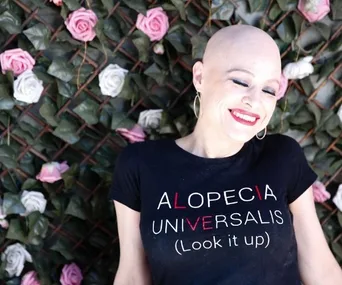Joydip Roy from Darwin, NT, shares his story with Take 5’s Mitchell Jordan:
Crocodiles crawled across the stretch of road, lying in wait for anyone who dared to pass.
From the safety of the viewing platform, I sat and watched them.
I was at the famous Cahills Crossing, a short stretch of road that ran through a croc-infested river in Kakadu National Park, a three-hour drive from my house back in Darwin.
But since March 2020, home had become a much lonelier place for me.
Back then, me, my wife, Reemi and our two daughters, Rajonya, 10, and Rupankita, seven, had travelled to Bangladesh to see our family, who we’d left behind to live in Australia in 2015.
My job with the NT government meant I could only take two weeks off, but Reemi and the girls planned to stay another three weeks.
“See you soon,” I told them, boarding the plane back to Australia.
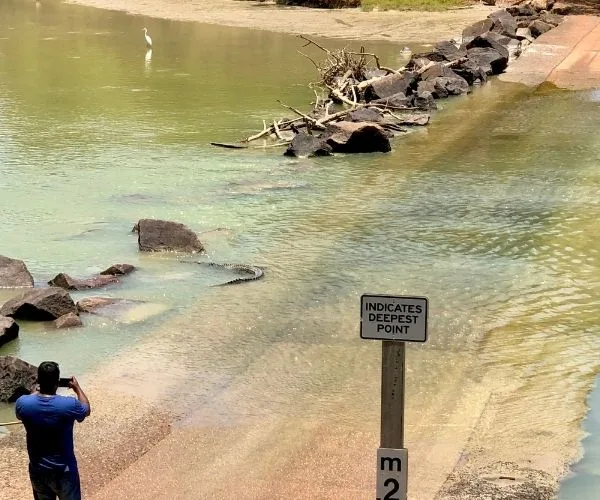
Joydip at Cahill’s Crossing.
(Image: Supplied)Days before they were due to leave, Reemi called me.
“The girls have chicken pox,” she said.
We were both doctors and knew the risk of them flying home while still infectious was both irresponsible and dangerous.
“Wait until they’ve recovered,” I said, booking them onto another flights in a few weeks’ time.
Not long after, talk of a virus spreading around the world began to dominate the news.
I was at work when a friend called: “The Prime Minister is urging all Australian residents to come home ASAP,” they said.
By now the threat of COVID was very real, so I booked three tickets for the next flight to Australia and let Reemi know.
Hours passed and, before I knew it, international borders were closed and my family couldn’t leave Bangladesh.
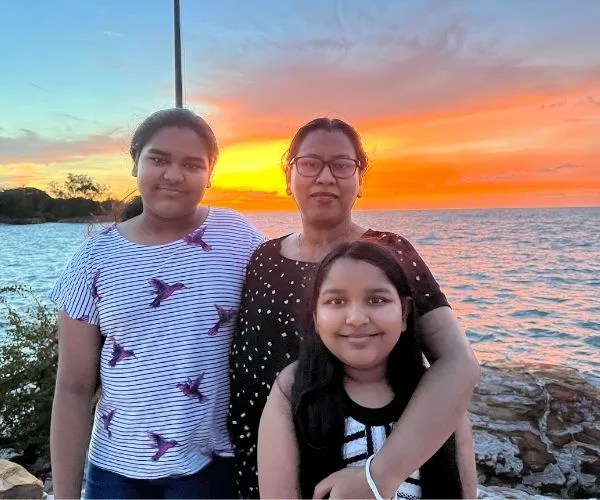
Joydip’s wife and daughters couldn’t return to Australia.
(Image: Supplied)I knew they were safe staying with mine and Reemi’s parents but the world was suddenly filled with uncertainty.
We’d never dealt with COVID before and no one could give me any indication of when borders might reopen.
“We just have to hope,” I told Reemi, who was following the Australian news constantly.
Going home from work each day, our two-bedroom place echoed with silence.
I was used to falling asleep with my wife and hearing our girls running up and down the stairs, laughing.
Their school backpacks were still placed on the seats, where they’d left them before going to Bangladesh.
They’ll be back soon, I told myself.
I had to believe it.
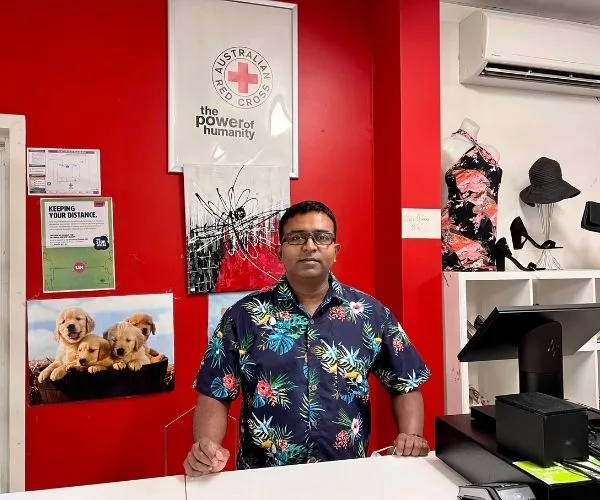
Joydip began volunteering with the Red Cross.
(Image: Supplied)Meanwhile, I had to face another challenge: I couldn’t cook anything other than rice or a fried egg!
Thankfully, friends started sending me meals and I relied heavily on takeaways.
When Darwin went into lockdown and we all had to work from home, I struggled mentally.
Speaking to people on Zoom or Facebook just wasn’t the same as being with them in-person.
My girls were getting desperate to come home.
“Learn to fly?” Rupankita suggested. “Then you could use Martin’s plane to bring us back.”
I laughed.
Martin was a friend and a pilot.
If only it were that simple.
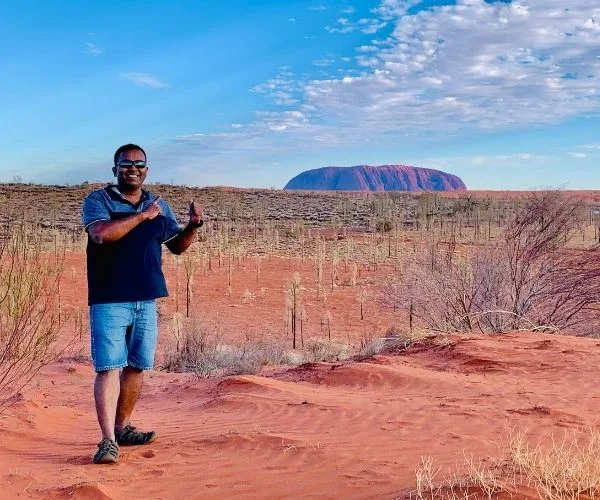
Joydip started to explore the Northern Territory.
(Image: Supplied)Once Darwin’s lockdown lifted, I began to explore as much of the area as possible, driving to Alice Springs and Uluru.
But Kakadu, which was the closest attraction to me, soon gained a special place in my heart.
Sitting at Cahill’s Crossing became my escape from the loneliness of weekends; watching the crocs swimming through the river calmed me.
I called my wife and children every day: on my lunch break, after work and before I went to bed.
COVID dragged on longer than any of us thought it would.
I applied for exemptions nine times to bring them back, but they were all denied.
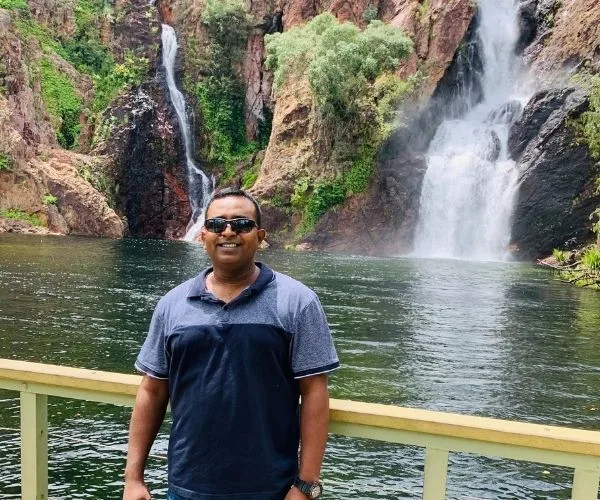
More exploring…
(Image: Supplied)Many Australians were stuck in similar situations but as my family weren’t citizens yet, it complicated our case further.
I tried my best to stay positive.
The sun will rise, I told myself.
To try to cheer myself up, I started volunteering at the Red Cross Op Shop in Palmerston and taking friends and workmates on tours of Kakadu.
But my family were always on my mind.
On their birthdays, I got a baker friend in Bangladesh to deliver cakes and balloons.
My daughters’ classmates from Wagaman Primary School sang them happy birthday via video link, and I took a cake and samosas to their school.
Time dragged on and still the borders remained closed.
Two years after I’d last seen my family a friend rang and cried: “Australia’s going to open!”
I felt a shudder down my spine.
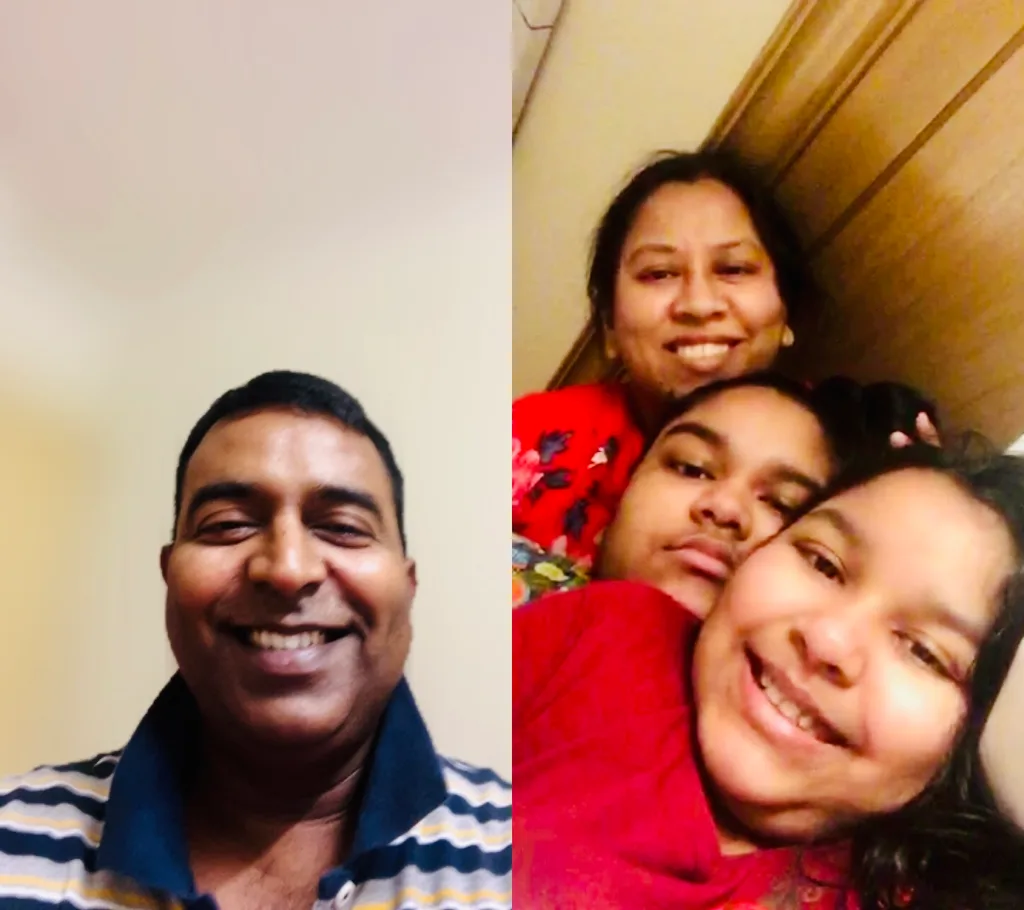
Talking to family as they flew.
(Image: Supplied)I immediately hopped online and tried to book flights but they were cancelled three times.
Finally, a booking held.
We’re on the plane, Reemi texted, sending me a picture.
I could scarcely believe it.
I tracked the flight on my phone, nervously checking every few minutes to see their progress.
They flew to Singapore, then Sydney and were due to fly to Brisbane next but Reemi called me upset.
“When we get to Brisbane, we have to go into hotel quarantine for 14 days,” she said.
They weren’t even leaving the airport, but those were the state’s rules.
“Don’t get on the plane yet,” I instructed, calling my travel agent who was able to put them on a direct flight to Darwin the following day.
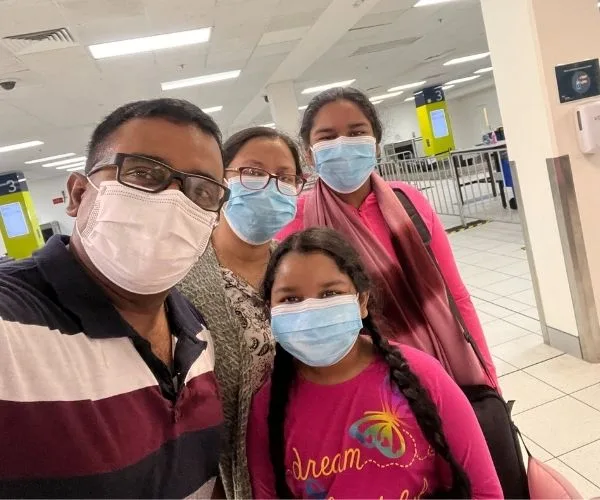
Reunited at Darwin airport.
(Image: Supplied)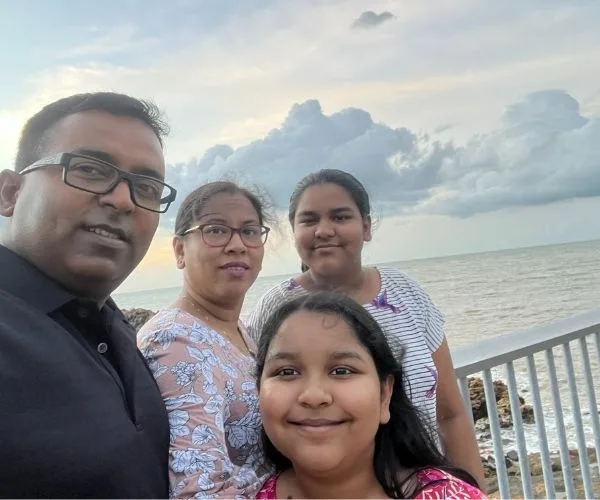
After two years apart, we’ve been on lots of outings, but I’ve learned you don’t need to go far at all to be happy.
(Image: Supplied)When they touched down at 1am, I ran towards them and we all hugged and cried.
“I love you,” I said.
The girls were so much taller.
Their faces had changed and their personalities had matured.
It was surreal.
“It’s so good to be home,” Reemi said. “I can’t believe you’ve managed for two years without my cooking!”
Being separated has brought us even closer.
We now cherish every moment.
After two years apart, we’ve been on lots of outings, but I’ve learned you don’t need to go far at all to be happy.
All you need is your family beside you.

